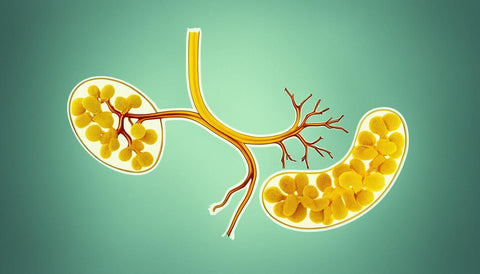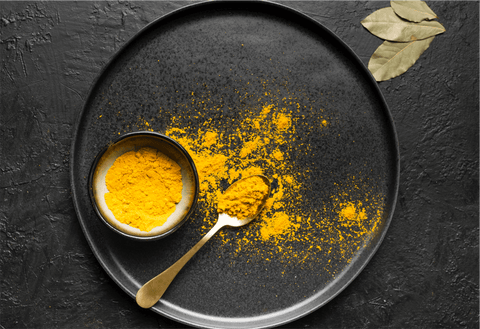Is Berberine Bad for Your Kidneys? Benefits & Side Effects

Key Takeaways
- Berberine is a natural compound with a wide range of potential health benefits, including support for cardiovascular, metabolic, and cognitive function.
- Concerns have been raised about the potential impact of berberine on kidney health, but the research paints a more nuanced picture.
- Berberine may have protective and beneficial effects on the kidneys, particularly in the context of chronic kidney disease and diabetes-related kidney damage.
- Potential benefits of berberine for kidney health include its anti-inflammatory properties, antioxidant effects, and ability to regulate blood sugar levels.
- While generally considered safe, there are some potential side effects and precautions to be aware of when taking berberine supplements.
Understanding Berberine: A Potent Natural Compound
Berberine comes from plants like goldenseal, barberry, and Oregon grape. It's been medicine in China and Ayurvedic areas for ages. It fights sickness, and swelling, and helps your body work better.
What is Berberine?
Berberine is special because it's good for you in many ways. It fights bad stuff in your body, makes swelling go away, and helps insulin work right. This is great for people with kidney disease, chronic kidney disease, or type 2 diabetes.
Traditional Uses and Modern Applications
For hundreds of years, people in China and Ayurvedic places used berberine. They are used for high blood pressure, and high blood sugar levels, and to help your body work better. Now, scientists are seeing it might help with kidney disease. It could also help people with chronic kidney disease and type 2 diabetes.

Is Berberine Bad for Your Kidneys?
Recent research suggests that berberine could be beneficial for kidney health, particularly for individuals with chronic kidney disease or diabetes. Studies indicate that berberine may help slow down kidney problems and reduce the risk of sudden kidney damage by combating inflammation and harmful molecules in the gut. Additionally, research shows that berberine can improve kidney function and help manage blood pressure, especially in those with diabetes and kidney issues. While more studies are needed to confirm its effectiveness, berberine shows promise for kidney health. However, it's crucial to consult a healthcare professional before incorporating berberine or any new supplement into your routine to ensure safety and efficacy.

The Potential Benefits of Berberine for Kidney Health
Berberine looks very promising for our kidneys. It helps in many ways. For example, it fights swelling, works as an antioxidant, and helps manage sugar in our blood.
Berberine's Anti-inflammatory Properties
Berberine helps our endothelial function. This is key for healthy kidneys. It stops inflammatory signs and lowers the damage from oxidative stress. These can lead to diabetic kidney disease and other problems.
Berberine's Antioxidant Effects
The power of antioxidants in berberine is well-studied. It can keep the kidneys safe from harmful stress. By starting the Nrf2 pathway, berberine leads our body to a stronger defense. This could mean better protection for our kidneys in many situations.
Berberine's Role in Regulating Blood Sugar Levels
Berberine is great at making insulin work better and controlling sugar. This is especially important for people with type 2 diabetes. High sugar in the blood can harm the kidneys. With berberine, blood sugar stays under better control. This might prevent or slow down kidney problems linked to diabetes.
Berberine and Kidney Disease: What the Research Says
The study on berberine's help for kidney disease looks hopeful but is still working out. The findings include the following:
Berberine and Chronic Kidney Disease
Research shows berberine might protect the kidneys and make chronic kidney disease better. It stops the making of harmful uremic toxins. These toxins can make kidney problems worse. Berberine also fights swelling and stops damage with its antioxidants.
Berberine and Diabetic Kidney Disease
In diabetic kidney disease, berberine seems helpful too. It makes the kidneys work better and slows down kidney trouble. This is because it helps balance blood sugar and does good things to the kidneys.
|
Condition |
Berberine's Effects |
|
Chronic Kidney Disease |
|
|
Diabetic Kidney Disease |
|
In sum, studies suggest berberine could be good for treating some kidney diseases. But we need more research to find out more about how it protects the kidneys.
Potential Side Effects and Precautions
Berberine might help a lot with your health, like protecting your kidneys. But, it's good to know about some bad effects and what to watch out for. Always ask a doctor before taking berberine, especially if you're already sick or take medicine.
Interactions with Medications
Berberine might not go well with some medicines you take. It can change how your body deals with drugs. If you take medicine for diabetes, high blood pressure, or heart problems, talk to your doctor first. They'll help you make sure berberine won't mess with your medicine.
Gastrointestinal Side Effects
Berberine can upset your stomach, making you feel sick, giving you diarrhea, or hurting your belly. But this usually goes away as your body gets used to it. Start with a small dose to see how your stomach handles it.
If you're careful, berberine is usually okay for most people. But, it's always smart to talk to a doctor before you start. This is important if you're already sick or take medicine every day.
Conclusion
In conclusion, the ongoing discussion about berberine's effects on kidney health emphasizes the importance of making well-informed decisions. Seeking advice from healthcare experts and evaluating personal reactions are essential. At Just-Glow, we promote a holistic approach to well-being by providing a variety of products that promote overall health and energy. Begin to take control of your health today by browsing our products and adopting a lifestyle that values internal wellness.
FAQ
Can berberine damage the kidneys?
Research on berberine shows mixed results for the kidneys. Some studies say it helps, especially in chronic kidney disease and diabetes. But, other research warns of possible harm. Always talk to your doctor if you're thinking about using berberine, especially with kidney issues.
Who should not take berberine?
Some people should be careful not to take berberine. This includes those with kidney or liver issues and pregnant or breastfeeding women. If you take certain medications, like for diabetes, to thin your blood or lower cholesterol, you should be cautious as well.
Can berberine cause damage?
Berberine is usually safe, but there can be side effects. These include stomach problems, like nausea and diarrhea. In some rare cases, it might affect the liver or kidneys, especially if you have health issues. Always ask your doctor before trying a berberine supplement.
What supplements are hardest on the kidneys?
Some supplements that can stress your kidneys are protein powders, creatine, and certain herbs. These include ephedra and licorice root, along with a lot of vitamin D. Be very careful with supplements, especially with kidney problems. Always check with your doctor before using new supplements.
Does berberine help kidney function?
Studies on berberine and the kidneys differ, but some show it could be good. Especially for chronic kidney disease and diabetes damage. Berberine helps fight inflammation, lowers blood sugar, and acts as an antioxidant. Still, we need more studies to know how well it helps the kidneys.
Summary
People are increasingly interested in berberine. This natural compound comes from plants and helps our health in many ways. It's known for boosting heart health and helping our bodies use food. Yet, some worry about its impact on our kidneys. Let's learn more about this. Today, we'll look into whether berberine is harmful or helpful for the kidneys. We'll cover its good and bad sides. This includes if it affects good gut bacteria, any side effects, and its benefits. By the end, you'll understand more about who should avoid berberine and if it can harm our kidneys.






